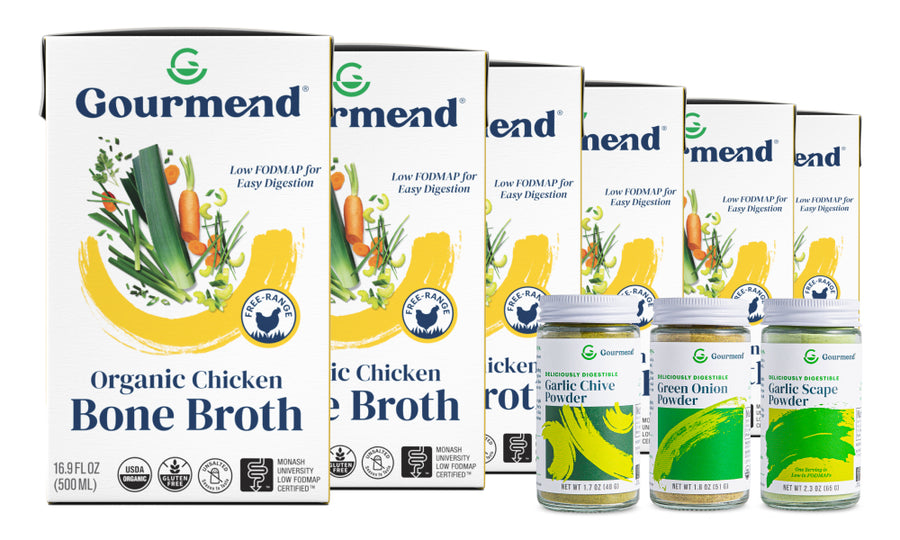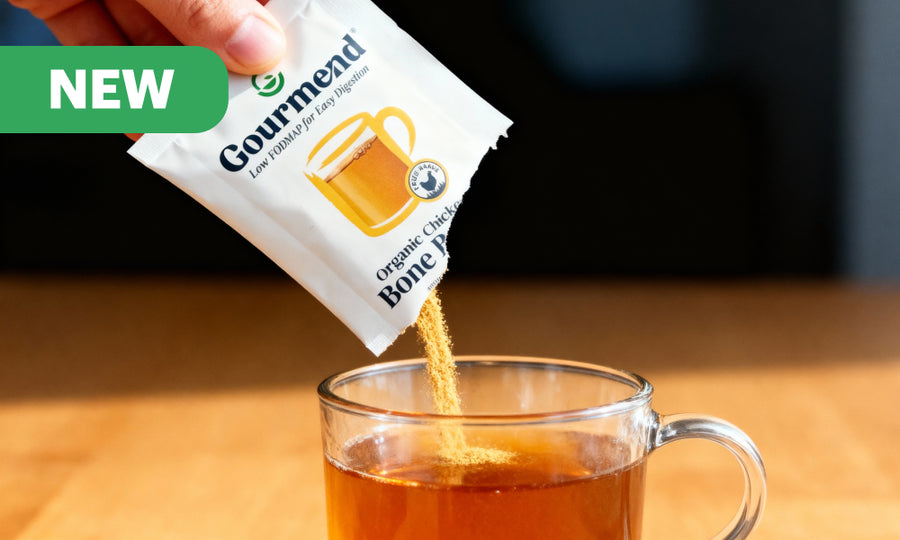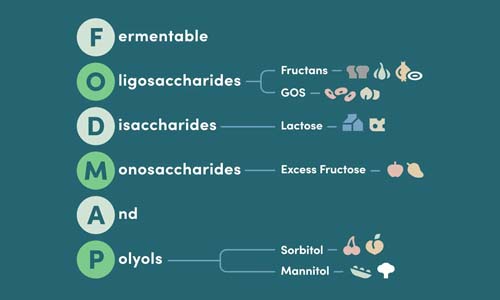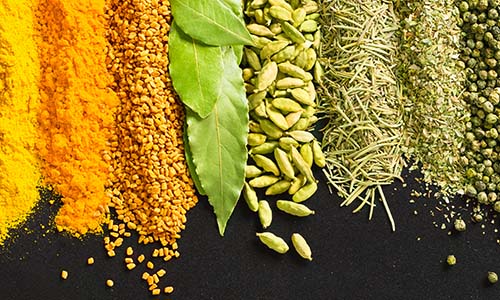Low FODMAP Soup: The Ultimate Guide to Gut-Friendly Flavor

Key Takeaways
- Low FODMAP soups replace difficult-to-digest ingredients like onions and garlic with gentler alternatives.
- Ingredients such as chives, green leek tops, and chive-infused oil enhance flavor without causing digestive issues.
- These soups provide restaurant-quality taste while supporting gut-friendly living.
- Low FODMAP soup is a beneficial option for individuals seeking flavorful meals that are easy on the digestive system.
Table of Contents
- Why Low FODMAP Soup is a Game-Changer for Flavorful, Gut-Friendly Living
- The Building Blocks, Essential Low FODMAP Ingredients & Gourmet Substitutes
- Low FODMAP Soup vs. Regular Soup, A Gourmet Comparison
- Step-by-Step, How to Make a Perfect Low FODMAP Soup at Home
- The Hall of Fame, Our Favorite Low FODMAP Soup Recipes
- Prep, Store, and Savor, Low FODMAP Soup for Busy Lives
- Taking it to the Next Level, Tips for Maximum Flavor and Digestive Ease
- Store-Bought vs. Homemade, Choosing the Best Low FODMAP Soup for You
- The Verdict, Our Top Low FODMAP Soup Recommendations
- Looking Ahead, The Future of Low FODMAP Soup Innovation
Why Low FODMAP Soup is a Game-Changer for Flavorful, Gut-Friendly Living
Low FODMAP soup is a beneficial option for individuals seeking flavorful meals that are easy on the digestive system. If you're looking for more ways to enjoy gut-friendly cooking, explore these low fodmap recipes for additional inspiration.
These soups provide restaurant-quality taste while supporting gut-friendly living. For a comforting classic, try this low fodmap chicken noodle soup recipe that's both satisfying and gentle on digestion.
Ingredients such as chives, green leek tops, and chive-infused oil enhance flavor without causing digestive issues. For a vibrant and nourishing option, you might also enjoy this low fodmap carrot ginger soup that highlights the power of simple, gut-friendly ingredients.
The Building Blocks, Essential Low FODMAP Ingredients & Gourmet Substitutes

Mastering low FODMAP soup begins with understanding which ingredients create harmony in your digestive system while building exceptional flavor profiles. The key lies in strategic substitutions that enhance rather than diminish taste complexity.
Top Low FODMAP Vegetables (with safe portions):
- Carrots (75g) - natural sweetness and body
- Pumpkin (under 75g) - creamy texture without dairy
- Sweet potato (½ cup cooked) - earthy richness
- Spinach (unlimited) - iron and color
- Zucchini (⅔ cup) - subtle flavor and bulk
- Nori seaweed - umami depth
- Oyster mushrooms - meaty texture
For a deeper dive into ingredient choices, see this guide to low fodmap vegetables and how to use them in your cooking.
Essential Flavor Swaps: Replace onions with chive sprigs, shallots with green leek tops, and garlic bulbs with garlic-chive stems. These substitutions maintain the aromatic foundation that makes soup satisfying while eliminating digestive triggers. For grains, choose quinoa and rice over barley or farro, and limit lentils to less than ⅓ cup cooked per serving to stay within safe FODMAP levels.
Low FODMAP Soup vs. Regular Soup, A Gourmet Comparison
| Feature | Low FODMAP Soup | Regular Soup |
|---|---|---|
| Aromatic Base | Chive sprigs & green leek tops | Onions, shallots, garlic bulbs |
| Umami Sources | Nori seaweed & oyster mushrooms | Traditional alliums |
| Broth Quality | Gourmend shelf-stable broth carton | Generic boxed broths |
| Digestive Impact | Easier digestion, less bloating | Potential IBS triggers |
| Flavor Complexity | Layered, restaurant-quality | Often one-dimensional |
The genius of low FODMAP soup lies in its sophisticated approach to flavor building. While traditional soups rely heavily on onion and garlic for depth, low FODMAP versions achieve greater complexity through carefully selected ingredients. Nori provides the oceanic richness typically found in expensive restaurant broths, while oyster mushrooms contribute the meaty satisfaction that makes soup a complete meal.
This isn't about limitation, it's about elevation. When you remove digestive irritants and replace them with thoughtfully chosen alternatives, you create space for your palate to appreciate subtler, more refined flavors that would otherwise be overwhelmed by harsh alliums.
Step-by-Step, How to Make a Perfect Low FODMAP Soup at Home
Creating exceptional low FODMAP soup requires technique, not complicated ingredient lists. Focus on building layers of flavor through proper timing and temperature control.
Foundation Technique:
- Sauté aromatics (3-5 minutes, medium heat): Heat oil in your soup pot, add chive sprigs and green leek tops. Cook until fragrant but not browned, this creates your flavor base without bitterness.
- Build umami (2-3 minutes): Add one nori sheet (torn into pieces) and ½ cup oyster mushrooms per 4-cup batch. The nori will dissolve slightly, enriching your broth with mineral complexity.
- Add liquid and simmer: Pour in Gourmend shelf-stable broth carton, bring to gentle simmer. Avoid boiling, which can make the soup cloudy and diminish delicate flavors. Simmer until vegetables are tender and flavors meld, about 15-20 minutes.
- Finish and adjust: Taste and adjust seasoning with sea salt, fresh herbs, or a squeeze of lemon juice for brightness. Serve hot and enjoy a bowl that's both gourmet and gentle on digestion.
The Hall of Fame, Our Favorite Low FODMAP Soup Recipes

These carefully tested low FODMAP soup recipes prove that digestive comfort never requires sacrificing gourmet flavor. Each recipe uses exactly three core ingredients to maximize taste while minimizing complexity.
Classic Chicken Soup Remix (25 minutes): Combine Gourmend shelf-stable chicken bone broth, chive sprigs, and nori for a soul-warming bowl that rivals any grandmother's recipe. The bone broth provides collagen richness while chives deliver the familiar onion-like depth you crave.
Creamy Pumpkin & Carrot Bisque (20 minutes): Purée roasted pumpkin (under 75g per serving) with carrots and fresh ginger for natural creaminess. Turmeric adds golden color and anti-inflammatory benefits without overwhelming the delicate vegetable sweetness.
Thai-Inspired Noodle Soup: Spiralized zucchini noodles, oyster mushrooms, and scallion greens create an aromatic bowl finished with coconut milk. For heat lovers, add a pinch of chili flakes, but start small to avoid overwhelming sensitive stomachs.
Hearty Veggie Detox Soup: Quinoa, diced carrots, and fresh parsley make this protein-rich option perfect for meal prep. Freezes beautifully for up to three months.
Bland soup rescue: Add fresh herbs, a squeeze of lemon juice, or a pinch of sea salt to brighten flavors instantly.
Discover our complete collection at our Low FODMAP Recipes page for endless inspiration.
Prep, Store, and Savor, Low FODMAP Soup for Busy Lives
Smart meal prep transforms low FODMAP soup from occasional treat to weeknight lifesaver. Double or triple your favorite recipes, then cool completely before portioning into freezer-safe containers labeled with dates.
Storage Guidelines: Refrigerate for up to four days or freeze for three months. Thaw overnight in the refrigerator, then reheat gently, simmer, don't boil, to preserve texture and nutrients. Portion 1½ cups per serving to maintain safe FODMAP levels while ensuring satisfaction.
| Use Case | Container Type | Storage Method |
|---|---|---|
| Office lunches | Glass mason jars | Refrigerate up to 4 days |
| School thermoses | Wide-mouth containers | Heat morning of use |
| Batch cooking | Freezer bags (flat) | Freeze up to 3 months |
Texture fixes: If soup separates after freezing, simply stir vigorously or blend briefly. Most low FODMAP soups freeze beautifully, though coconut milk-based versions may need gentle reblending after thawing.
Taking it to the Next Level, Tips for Maximum Flavor and Digestive Ease
Elevate your low FODMAP soup game with professional techniques that maximize flavor synergy while maintaining digestive comfort. These methods work whether you're a seasoned cook or complete beginner.
Flavor Layering Mastery: Combine chive sprigs and green leek tops in a 1:1 ratio during your initial sauté for optimal aromatic complexity. Add nori at the very end, steep for 2 minutes before serving, then remove the sheet. This technique creates an umami burst without overwhelming the delicate balance you've built.
Acid Balance Technique: Finish with a splash of lemon juice or rice vinegar to brighten flavors without adding extra sodium. This simple step transforms a good low fodmap soup into restaurant-quality brilliance.
Natural Thickening Methods: Skip cream and high FODMAP starches by pureeing a portion of your cooked vegetables back into the pot. Carrots, sweet potatoes, and rice create luxurious body while maintaining digestive gentleness.
Portion Management: When incorporating lentils or beans, limit to less than ⅓ cup cooked per entire batch. This keeps FODMAP levels safe while adding protein and fiber.
For more on the science behind FODMAPs and digestive health, see this peer-reviewed overview of the low FODMAP diet.
Store-Bought vs. Homemade, Choosing the Best Low FODMAP Soup for You

The choice between homemade and store-bought low fodmap soup depends on your priorities: customization versus convenience, time investment versus consistent results.
| Factor | Gourmend Shelf-Stable Broths | Generic Store Brands | Homemade |
|---|---|---|---|
| Ingredient Transparency | Complete ingredient disclosure, clean labels | Often includes unnamed "natural flavors" | Full control over every component |
| FODMAP Safety | Certified low FODMAP formulations | May contain hidden onion/garlic powders | Guaranteed safe with proper substitutions |
| Flavor Depth | Nori and oyster mushroom umami complexity | Salt-heavy, one-dimensional taste | Customizable to personal preferences |
| Convenience | Ready in 5 minutes, consistent results | Quick but unpredictable quality | 45-60 minutes prep and cook time |
When to Choose Store-Bought: Gourmend's shelf-stable broth cartons excel for busy weeknights, office lunches, and consistent flavor profiles. Our customers particularly value the clean-label approach and reliable low FODMAP certification.
When to Go Homemade: Choose homemade when you want complete customization for specific dietary needs, enjoy the cooking process, or need large batch quantities for meal prep.
The Hybrid Approach: Many Gourmend customers use our broths as the foundation, then add their preferred vegetables and proteins. This strategy delivers gourmet flavor with minimal time investment while maintaining complete ingredient control.
For authoritative guidance on FODMAPs and IBS, visit the Monash University FODMAP resource.
The Verdict, Our Top Low FODMAP Soup Recommendations
After extensive testing and customer feedback, these approaches consistently deliver exceptional low fodmap soup experiences:
Gourmend Chicken Bone Broth Base - Perfect for Beginners
Best for: IBS newcomers and time-pressed professionals seeking reliable results
This foundation provides foolproof flavor complexity through our signature chive and leek green blend. The bone broth base delivers satisfying richness while remaining gentle on sensitive digestive systems. Simply add your choice of carrots, zucchini, or sweet potato for a complete meal in under 15 minutes.
Homemade Approach - Ultimate Flexibility
Best for: Experienced cooks who want complete dietary control
Building from scratch allows precise FODMAP management and flavor customization. Start with chive sprigs and green leek tops as your aromatic base, then layer in nori and oyster mushrooms for umami depth. This method requires more time but rewards with restaurant-quality results tailored to your exact preferences.
Hybrid Method - Best of Both Worlds
Best for: Busy home cooks who refuse to compromise on quality
Combine Gourmend's shelf-stable broth carton with fresh vegetables and herbs. This approach cuts prep time by 70% while maintaining gourmet flavor standards. Perfect for meal prep enthusiasts who want variety without starting from zero each time.
Looking Ahead, The Future of Low FODMAP Soup Innovation
The low fodmap soup landscape continues evolving as more people discover the connection between digestive comfort and ingredient choices.
Emerging Ingredient Trends: Seaweed varieties beyond nori are gaining popularity for their mineral content and umami properties. Kelp and dulse offer new flavor dimensions while remaining FODMAP-friendly.
Fermentation Integration: Expect to see more fermented vegetables and miso-style bases, which can add complexity and gut-friendly benefits when used in moderation. As research grows, so will the range of low FODMAP soup options available to you.
For more inspiration and to convert your favorite recipes, try our Low FODMAP Recipe Conversion Tool.
Frequently Asked Questions
What are the best low FODMAP substitutes for onions and garlic in soup recipes?
The best low FODMAP substitutes for onions and garlic are chive sprigs, green leek tops, and garlic-chive stems. These ingredients provide the familiar onion-like depth and subtle garlic notes without triggering digestive discomfort.
How does low FODMAP soup differ from regular soup in terms of flavor and digestive impact?
Low FODMAP soup replaces high-FODMAP ingredients like onions and garlic with gentler alternatives, maintaining rich, gourmet flavors while being easier to digest. This means you can enjoy restaurant-quality taste with less bloating and digestive upset.
Which vegetables and ingredients are considered safe and flavorful for making low FODMAP soups?
Safe and flavorful low FODMAP ingredients include carrots, pumpkin, sweet potato, spinach, zucchini, nori seaweed, and oyster mushrooms. These provide natural sweetness, umami depth, and satisfying textures without compromising digestive comfort.
Can store-bought low FODMAP soups match the taste and quality of homemade versions?
Yes, store-bought low FODMAP soups, especially those made with high-quality, shelf-stable broths like Gourmend’s, can deliver gourmet flavor and convenience. They offer a reliable, gut-friendly option when time is tight, without sacrificing taste or ingredient integrity.





